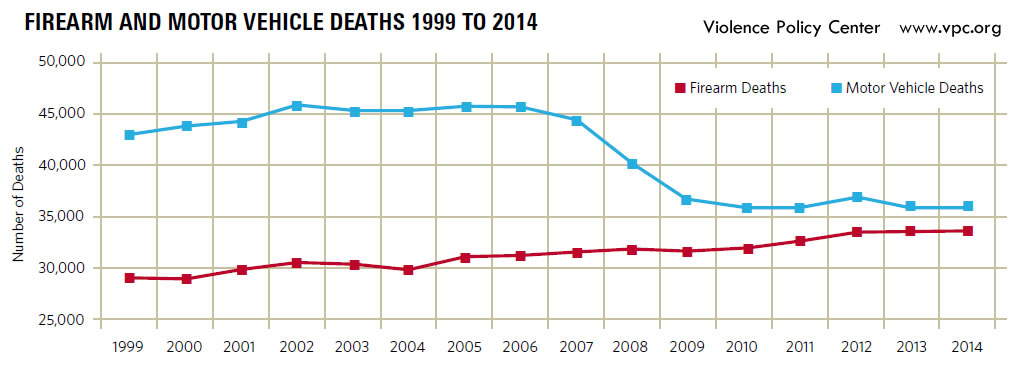| Author |
Message |
 |
|
|
 |
|
Advert
|
Forum adverts like this one are shown to any user who is not logged in. Join us by filling out a tiny 3 field form and you will get your own, free, dakka user account which gives a good range of benefits to you:
- No adverts like this in the forums anymore.
- Times and dates in your local timezone.
- Full tracking of what you have read so you can skip to your first unread post, easily see what has changed since you last logged in, and easily see what is new at a glance.
- Email notifications for threads you want to watch closely.
- Being a part of the oldest wargaming community on the net.
If you are already a member then feel free to login now. |
|
 |
![[Post New]](/s/i/i.gif) 2017/10/06 09:03:58
Subject: Active Shooter in Las Vegas Attacks Country Music Festival with Automatic Weapon
|
 |

Longtime Dakkanaut
Glasgow
|
 stanman wrote: stanman wrote: sebster wrote: sebster wrote:
The problem with this theory is that compared to other developed nations, the US doesn't just have a higher rate of gun murder, the US also has a higher rate of murder overall. And not just a little higher, four or five times the rate of other developed countries.
For your theory to be correct, it would mean that Americans are just an angrier, more homicidal people, and that each new wave of immigrants that's come the US has stepped off the boat with that inherent murderous compulsion inside them. That guns are just a coincidental aside to this amazing national story of an America that has all the wealth and education that's helped to massively reduce murder everywhere else in the world, but not in America where the people are just inherently murderous.
The alternative theory is that Americans are across the whole the same as other developed countries. Similar levels of violent crime (except murder), similar levels of drug use, similar levels of property crime. But people everywhere, the US and overseas, they are susceptible to being in situations where they might have a moment of murderous rage. Having one of these moments is heavily dependent on education, drug use, and other such factors. But thing is, when one of those moments happens, well then it really doesn't help to have a gun within easy reach. This doesn't mean every gun owner is dangerous, because they simply aren't. We're talking about a tiny fraction of a fraction. Nor are gun owners more murderous than anyone else. But I am saying that people make decisions in the spur of the moment, most killings are not pre-meditated, and in that moment, having a device that can kill with a pull of a trigger makes the situation that much more likely to get someone killed.
Part of it could be cultural differences, if I could pin point things exactly I'd write a best selling book and make a fortune in criminal profiling.  I know that there's a stereotype that Americans are lazy Homer Simpson types, but US workers put in a very significant amount of time at work and commuting which places them under a huge amount of stress that other countries may not experience in the same manner. We have a tremendously high work output but are constantly being told by management that it's not enough and to work longer and push harder, people can only endure so much before they start to break and unfortunately when some people snap it can be a very violent affair.
Given how poor medical cover is, the paltry leave that's general accepted, and the low levels of workers' rights in the US compared to other wealthy nations, there's certainly an argument for higher levels of stress, but it's very pop-psychology. I'm sure there's an abundance of research on relative stress levels experienced internationally to consult. Off the top of my head - and I only deal with this kind of stuff when it's tangentially related to anthropological studies - it's usually Japan and wealthier strata in China that get cited as the highly-stressed populations. Usually correlates with suicide rather than murder, I think.
|
|
|
 |
 |
![[Post New]](/s/i/i.gif) 2017/10/06 09:31:03
Subject: Re:Active Shooter in Las Vegas Attacks Country Music Festival with Automatic Weapon
|
 |

Calculating Commissar
|
 stanman wrote: stanman wrote:
Kinda odd saying rifles in the hands of civilians are useless, when a single guy with civilian grade arms just ambushed and murdered 50 people.
50 civilians in a field of 22,000, with no alert status or warning. He was dealt with pretty quickly when a response team got there.
How would that same guy fare if trying to take on a non-civilian force? Automatically Appended Next Post:  Grey Templar wrote: Grey Templar wrote: Thargrim wrote: Thargrim wrote:I think so long as someone is out there with a will and desire to hurt others they will find a way. Whether this person has guns or not. You can mitigate the access to things they can use to harm others. But at the end of the day this person is going to hurt people. And a person like that is not going to care about obeying any laws either.
This is ultimately the crux of it. Limiting the means a person has to cause harm is ultimately not a solution. You need to focus on why they want to cause harm in the first place, focusing on the tools they used is wasted effort.
It vastly limits the damage done, though.
But you're right; gun ownership isn't the distinguishing factor in gun crime in the US, because gun ownership doesn't cause the same issues elsewhere. Looking into mental health support, attitudes and other factors would probably make more difference.
|
|
This message was edited 1 time. Last update was at 2017/10/06 09:38:58
|
|
|
 |
 |
![[Post New]](/s/i/i.gif) 2017/10/06 11:23:51
Subject: Active Shooter in Las Vegas Attacks Country Music Festival with Automatic Weapon
|
 |

Confessor Of Sins
|
 Jadenim wrote: Jadenim wrote:In practical terms, yes you might need a lot of ammunition when practicing at a range, but does it all need to be kept at home? Would there not be room for bonded stores at ranges and gun clubs, where people could keep their extra ammunition?
We've had these suggestions pop up here when anti-gun people try to lobby for tighter guns laws (even if guns aren't much of a problem here). Ammo and guns should be kept locked up at the range or club because of some twisted logic where honest legal gun owners are the most dangerous people around, I guess. Then sensible gun owners point out that the bigger ranges are usually situated somewhat out of the way to reduce noise pollution, meaning inconvenience for the user if he's going hunting and great convenience for criminals that want to steal guns. Competent burglars work fast so you can't leave the storage unguarded - the response to a burglar alarm from a place out of the city where security or police usually hang out isn't going to be fast enough to intercept a criminal, only pick up the pieces. So there would have to be a 24-hour presence there and who's going to pay for that?
|
|
|
 |
 |
![[Post New]](/s/i/i.gif) 2017/10/06 11:40:09
Subject: Re:Active Shooter in Las Vegas Attacks Country Music Festival with Automatic Weapon
|
 |

Last Remaining Whole C'Tan
|
|
 lord_blackfang wrote: lord_blackfang wrote:Respect to the guy who subscribed just to post a massive ASCII dong in the chat and immediately get banned.
 Flinty wrote: Flinty wrote:The benefit of slate is that its.actually a.rock with rock like properties. The downside is that it's a rock
|
|
|
 |
 |
![[Post New]](/s/i/i.gif) 2017/10/06 11:40:38
Subject: Re:Active Shooter in Las Vegas Attacks Country Music Festival with Automatic Weapon
|
 |

Longtime Dakkanaut
|
Herzlos wrote: stanman wrote: stanman wrote:
Kinda odd saying rifles in the hands of civilians are useless, when a single guy with civilian grade arms just ambushed and murdered 50 people.
50 civilians in a field of 22,000, with no alert status or warning. He was dealt with pretty quickly when a response team got there.
How would that same guy fare if trying to take on a non-civilian force?
Automatically Appended Next Post:
 Grey Templar wrote: Grey Templar wrote: Thargrim wrote: Thargrim wrote:I think so long as someone is out there with a will and desire to hurt others they will find a way. Whether this person has guns or not. You can mitigate the access to things they can use to harm others. But at the end of the day this person is going to hurt people. And a person like that is not going to care about obeying any laws either.
This is ultimately the crux of it. Limiting the means a person has to cause harm is ultimately not a solution. You need to focus on why they want to cause harm in the first place, focusing on the tools they used is wasted effort.
It vastly limits the damage done, though.
But you're right; gun ownership isn't the distinguishing factor in gun crime in the US, because gun ownership doesn't cause the same issues elsewhere. Looking into mental health support, attitudes and other factors would probably make more difference.
The casualties in Las Vegas were decreased by the actions of the shooter. He killed 50 people and wounded hundreds in the span of 10 minutes and then killed himself when hotel security showed up on his floor. LVPD didn't enter his room for over an hour after the shooting started. If he doesn't kill himself he could have kept on shooting people for another 60 minutes until SWAT breached his room and took him out. The US is a big place, response times aren't fast because whether it's police or a mobilized military in some kind of domestic Red Dawn fantasy there's no way to have enough forces on the ground to ensure peace and compliance.
I want to comment on the mental health issues in the US more when I'm not stuck using my iPhone.
|
Mundus vult decipi, ergo decipiatur
 |
|
|
 |
 |
![[Post New]](/s/i/i.gif) 2017/10/06 11:45:03
Subject: Active Shooter in Las Vegas Attacks Country Music Festival with Automatic Weapon
|
 |

Longtime Dakkanaut
|
treslibras wrote:Are you comparing texting to shooting in the ridiculous hope to make a concise point? Because, you know, one is an insturment made to kill - that most people use to feel cool and more protected and shoot at paper targets once in a while, and the other is not.
Both are technological tools that, if misused, can cause death and/or serious bodily injury. As someone who has seen the brains of some kid smeared on the highway, or charred corpses in a burnt out car more times than I've cared to, which were found to be the results of cell phone usage while driving, this tired, old argument holds no water to me.
sebster wrote:
Yeah, this is a stat that gets passed around by companies selling all kinds of personal security stuff, from guns to cameras to private patrols. In case you couldn't guess, stats passed around by companies that need you to be afraid to buy their products are rarely a very reliable source of crime statistics. And shockingly enough, this particular claim just happens to be one of the sillier efforts. It's actually a doubling down on bs, because it relies on both myths around home invasion, and myths around rape. In around 2/3 of rapes the attacker is known to the victim, and in most cases there's no overt physical force used at all, pressure and implied threat is used. That's a sad and sobering reality and is important for peopel to understand for us to make real steps in preventing rape.
It's a stat that comes from U.S. government crime statistics and the research of think tanks. Most reputable security and self defense experts, at least those with a background in law enforcement, will tell you that career criminals are creatures of opportunity. While a group of teens and/or dope addicts conducting a smash n'grab, or a contracted pro after a rare coin collection, are not a very high threat to the residents of dwelling, the common burglar is a serious threat. With the common burglar, what starts out as a burglary can devolve into a sexual assault, kidnapping, or (more often) a murder.
The threat is double that in a violent armed home invasion, which happens more frequently than some will acknowledge. Especially with the drug and gang problem we have in this country.
But there's stuff like the above, playing on the silly old myth that rape mostly strangers breaking in to your house to hold you down while you scream and fight.
It might be a "myth" in Straya, brah. In the United States, those of us who are informed understand that it can happen, and it has happened in the past.
You obviously have no understanding how insurgencies work. There is a reason why civil wars are the nastiest kind of conflicts.
"Now I have dismantled congress, executed the Supreme Court justices and burned the constitution, the USA is mine to rule with an iron fist! What's that, a series of ambushes on military convoys killed 100 soldiers over two weeks? I can't have that on my conscious. Call the whole evil empire off. Give them back their country. I'm just gonna raid Fort Knox and escape in a rocket to the moon."
And when convoys keep getting hit and troops (somebody's friends and loved ones) keep dying over time? When supplies keep flowing into an insurgency's coffers as a result? When the insurgents are operating on a cell system and can blend into the general population? When foreign powers start taking interest? When the public, who has no trust for you or your media organs, don't buy into your anti-insurgent propaganda? And when the body count from reprisals start turning your people against you (even dictatorships need the support of the population to be viable). When you start having tired and demoralized troops deserting in increasing numbers?
You probably need to do some reading on Cambodia. There's others, but that's a good place to start.
A country where Pol Pot and his thugs had a near-monopoly on the use of force, thanks to over a century of gun laws imposed by the overthrown monarchy and their French handlers. And Pol Pot, taking a page from Castro's playbook, played the "great liberator" and "man of the people", keeping his tyrannical side well concealed until this power was firmly cemented.
No, none of those militaries were held in check. In each case the US took control of every part of the country it wanted to control. What the insurgencies did was cede that land, and engage in small scale raids and ambushes, aiming to cause enough attrition that the US got tired of the time, money and lives paid.
And that is the aim of any insurgency worth it's salt: Attrition. You bleed the enemy dry with a thousand paper cuts.
If you cannot go anywhere without a serious risk of ambush or boobytraps, then you have no real control of the country itself. Like the Soviets before us, we may control the cities and military facilities. But the countryside is still the insurgent's playground.
And in Vietnam, U.S.and ARVN troops were not safe anywhere, except off-shore or in RVN airspace further south.
That's a great way of winning a war against a foreign occupier, but it's a hopeless strategy against a domestic government. A government has a price point where it will abandon some overseas geopolitical aim and bring its troops back home, but no such price point exists where it will give up trying to be a government inside its own borders.
An insurgency in your own backyard is the easiest one to win, especially in the United States and partly due to our Federalist system. The key is the general population. Without some degree of popular support, no government is going to win on the homefront. That's true in a foreign war. And it's doubly true in a civil war. If the home-brew insurgency has won the support among a large percentage of the domestic population, they have, for all intents and purposes, have won the war. The government forces will just be delaying in the inevitable. In the United States, we are taught a certain degree of mistrust for government from birth, even among big government leftists and statists. Combined with the cynicism and incompetence of our political class, a rebellion winning over hearts and minds isn't a stretch.
The military in this country is primarily loyal to the ideals behind the Constitution of the United States of America, and to what it stands for. Not specifically to the Federal Government or any of it's three branches. If a regime in D.C. were to get out of hand, they would lose the support of the rank and file among the U.S. Armed Forces.
Finally, an insurgency fighting against a hypothetical tyrannical regime in Washington would have the support of most of the State governments, who won't bend a knee, and will likely have the backing of the National Guard.
It wouldn't be that hard to carry out a rebellion against a tyrannical or overreaching dictatorship that exist on the national level.
It is rather telling that people who insist that they need guns in order to fight in case the government goes bad seem to have no concern about the extremely tight controls on explosives, which as you say would be the key weapon in any resistance.
Bombs, like guns, are just one tool of many in the insurgent's toolbox. However, over reliance on explosives can backfire. Depending on explosives alone is fine if you are a run of the mill terrorist. Not if you are fighting a civil war, which relies on popular support to have even a chance at pulling off your endgame. Start with the whole bomberman routine, and you will play right into the government's hands.
|
Proud Purveyor Of The Unconventional In 40k |
|
|
 |
 |
![[Post New]](/s/i/i.gif) 2017/10/06 12:07:00
Subject: Re:Active Shooter in Las Vegas Attacks Country Music Festival with Automatic Weapon
|
 |

Mekboy on Kustom Deth Kopta
|
nfe wrote:

I'm curious about these numbers - I'd have thought the number of car deaths would have outstripped firearms deaths by a much more significant distance. How does vehicle ownership per capita stack up against gun ownership per capita?
the numbers are correct. there's not much difference between deaths currently. But notice the trends?
the per capita of cars continues to rise, yet deaths remain the same. more cars, less deaths, proof regulations save lives.
guns per capita remains about the same, yet the deaths are on the rise. Few people buying more guns.
it's only a matter of time before gun deaths passes vehicle deaths. will that finally be the time to talk about gun control?
|
|
|
|
 |
 |
![[Post New]](/s/i/i.gif) 2017/10/06 12:53:32
Subject: Re:Active Shooter in Las Vegas Attacks Country Music Festival with Automatic Weapon
|
 |

Longtime Dakkanaut
|
Regulation doesn't mean nothing bad will happen ever again, but it sures does something to help the numbers drop. The best example is Australia.
http://www.slate.com/blogs/crime/2012/12/16/gun_control_after_connecticut_shooting_could_australia_s_laws_provide_a.html
As America grapples with the fallout of yet another mass shooting—the massacre of at least 50 people at a music festival in Las Vegas—the long and bitter debate over gun control in America will inevitably be reopened. After Sandy Hook, Will Oremus highlighted the lessons of Australia’s strict gun laws and the resulting success in preventing subsequent mass shootings there. The post is reprinted below.
Will Oremus Will Oremus
Will Oremus is Slate’s senior technology writer. Email him at will.oremus@slate.com or follow him on Twitter.
On April 28, 1996, a gunman opened fire on tourists in a seaside resort in Port Arthur, Tasmania. By the time he was finished, he had killed 35 people and wounded 23 more. It was the worst mass murder in Australia’s history.
Twelve days later, Australia’s government did something remarkable. Led by newly elected conservative Prime Minister John Howard, it announced a bipartisan deal with state and local governments to enact sweeping gun-control measures. A decade and a half hence, the results of these policy changes are clear: They worked really, really well.
At the heart of the push was a massive buyback of more than 600,000 semi-automatic shotguns and rifles, or about one-fifth of all firearms in circulation in Australia. The country’s new gun laws prohibited private sales, required that all weapons be individually registered to their owners, and required that gun buyers present a “genuine reason” for needing each weapon at the time of the purchase. (Self-defense did not count.) In the wake of the tragedy, polls showed public support for these measures at upwards of 90 percent.
What happened next has been the subject of several academic studies. Violent crime and gun-related deaths did not come to an end in Australia, of course. But as the Washington Post’s Wonkblog pointed out in August, homicides by firearm plunged 59 percent between 1995 and 2006, with no corresponding increase in non-firearm-related homicides. The drop in suicides by gun was even steeper: 65 percent. Studies found a close correlation between the sharp declines and the gun buybacks. Robberies involving a firearm also dropped significantly. Meanwhile, home invasions did not increase, contrary to fears that firearm ownership is needed to deter such crimes. But here’s the most stunning statistic. In the decade before the Port Arthur massacre, there had been 11 mass shootings in the country. There hasn’t been a single one in Australia since.
There have been some contrarian studies about the decrease in gun violence in Australia, including a 2006 paper that argued the decline in gun-related homicides after Port Arthur was simply a continuation of trends already under way. But that paper’s methodology has been discredited, which is not surprising when you consider that its authors were affiliated with pro-gun groups. Other reports from gun advocates have similarly cherry-picked anecdotal evidence or presented outright fabrications in attempting to make the case that Australia’s more-restrictive laws didn’t work. Those are effectively refuted by findings from peer-reviewed papers, which note that the rate of decrease in gun-related deaths more than doubled following the gun buyback, and that states with the highest buyback rates showed the steepest declines. A 2011 Harvard summary of the research concluded that, at the time the laws were passed in 1996, “it would have been difficult to imagine more compelling future evidence of a beneficial effect.”
Whether the same policies would work as well in the United States—or whether similar legislation would have any chance of being passed here in the first place—is an open question. Howard, the conservative leader behind the Australian reforms, wrote an op-ed in an Australian paper after visiting the United States in the wake of the Aurora shootings. He came away convinced that America needed to change its gun laws, but lamented its lack of will to do so.
There is more to this than merely the lobbying strength of the National Rifle Association and the proximity of the November presidential election. It is hard to believe that their reaction would have been any different if the murders in Aurora had taken place immediately after the election of either Obama or Romney. So deeply embedded is the gun culture of the US, that millions of law-abiding, Americans truly believe that it is safer to own a gun, based on the chilling logic that because there are so many guns in circulation, one's own weapon is needed for self-protection. To put it another way, the situation is so far gone there can be no turning back.
That’s certainly how things looked after the Aurora shooting. But after Sandy Hook, with the nation shocked and groping for answers once again, I wonder if Americans are still so sure that we have nothing to learn from Australia’s example.
So yes, there is a proof that regulation makes the numbers of such terrible events suddenly drop : Australia. Sure, it's not the same scale as USA, but the numbers are still there. Actions can be taken. It's not easy, it takes time and it sure makes things difficult at first, but on long term, the facts are here; since 1996, no more mass murder event happened for 21 years in Australia, while before it was once per year. Also the numbers for suicide by gun weapon, murder by gun weapon and criminal acts with a gun weapon have significantly dropped since then.
And yes, it restricts the ways to own a gun, and in that way it restricts the freedom to own one. You can't just go to a shop and buy one, you have to follow a lot of rules. But well, that's what happens with a lot of others things in life. The real question is : is it worth it, for the lives that could be saved thanks to that in the future and for the loss of personnal liberties on long term ? It is the same for loss of personnal liberties when taking a flight, just to restrict the access for potential terrorists to crash a plane into towers. Was it worth it ?
The question is actually for you Americans to decide.
|
|
This message was edited 1 time. Last update was at 2017/10/06 12:53:53
|
|
|
 |
 |
![[Post New]](/s/i/i.gif) 2017/10/06 13:04:56
Subject: Active Shooter in Las Vegas Attacks Country Music Festival with Automatic Weapon
|
 |

[MOD]
Not as Good as a Minion
|
We seem to be well off the deep end with random other arguments and "fighting the government when they take over" fantasies, so we're done here. Well off topic
|
I wish I had time for all the game systems I own, let alone want to own... |
|
|
 |
 |
|
|
|